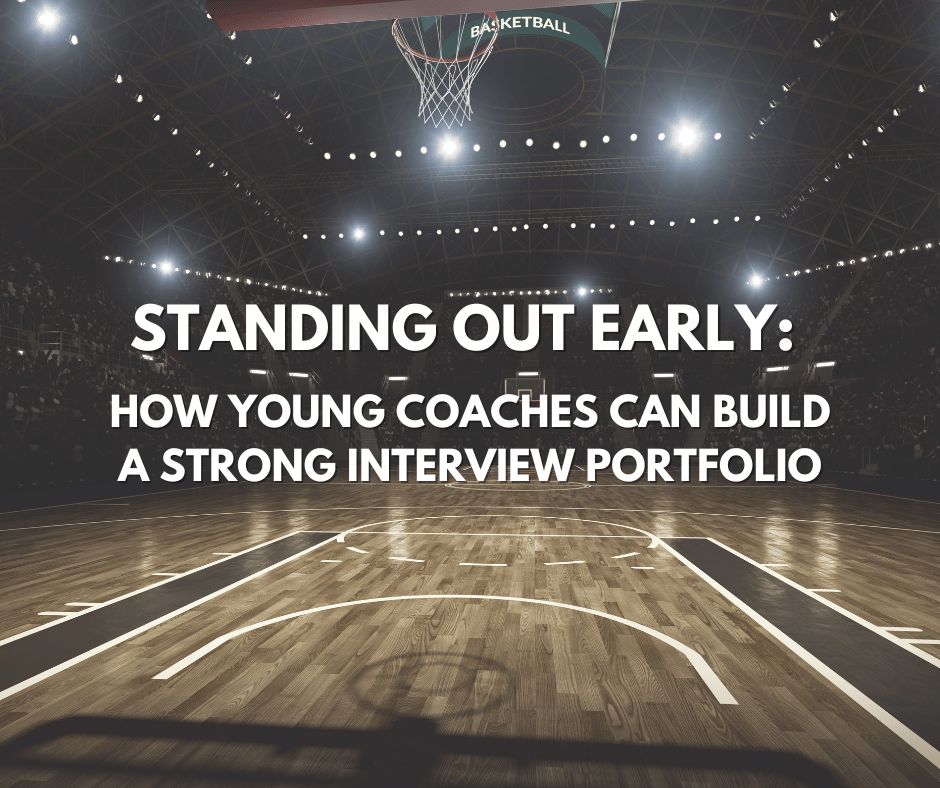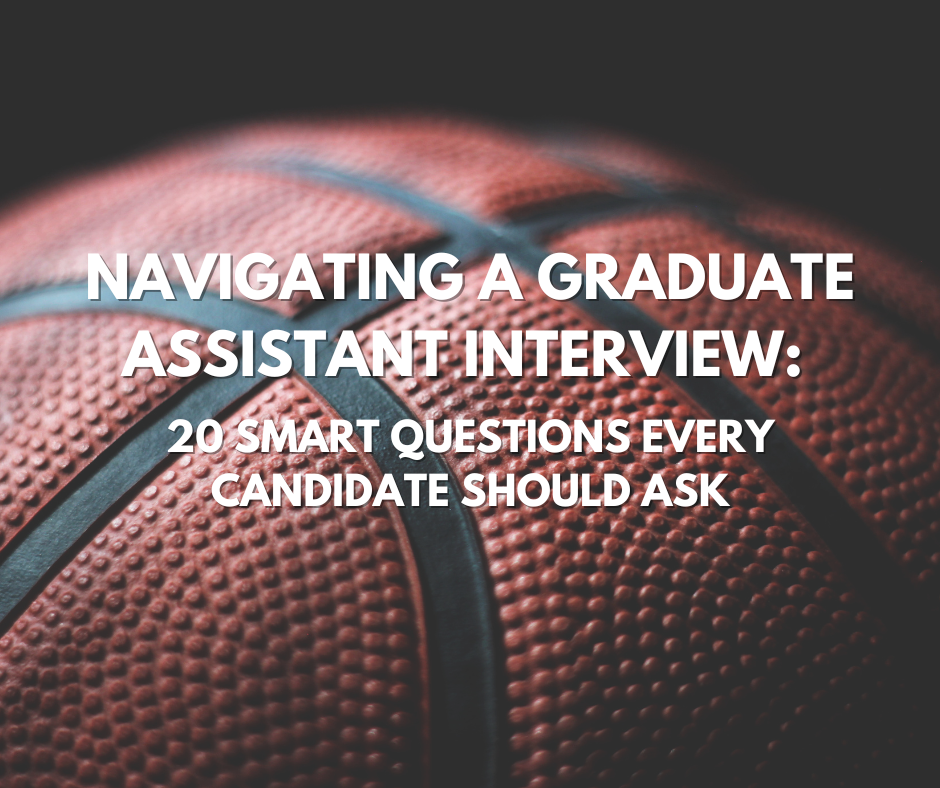I received an email from a college athlete that had just recently received his undergraduate degree. He asked how he should build a coaching portfolio when he lacked coaching experience. In my opinion, it is important for young, aspiring coaches to start to put their thoughts and ideas down on paper to develop their thought process regarding the profession. This will not only demonstrate their commitment to the profession to potential employers, it will also allow them to critically think about what their values and philosophies are as a coach.
Here are the sections I would focus on in a portfolio for someone who recently graduated from college with minimal coaching experience. If you need help, sign up at The Coaching Portfolio Guide to view sample portfolios and documents.
Career Highlights – I would put your playing career highlights – honors, awards, individual and program achievements. I would also talk about off the field activities you were involved in, especially any mentoring or community service activities. As a young assistant, you are going to be asked to head up a lot of the off the field activities, so if you were an active participant as a player, you want to demonstrate that you can also lead those things as a coach.
Coaching Philosophy – If you haven’t created one yet, now is the time to do so. I made mine while in college and I still use it today. There is a section in The Coaching Portfolio Guide on how to get started.
Core values – This is another section you can start to develop even without much coaching experience. What core values or principles were most important to you as a player and how would you develop them within a program as a coach?
Letters of recommendation – I do not include these now, but I did when I was just starting out in the profession. Get them from your head coach, position coach, strength coach, etc. Ask them to make the letters out to “Whom It May Concern” so that you can use them in your portfolio.
Recruiting – You won’t necessarily have a “recruiting plan” but I think you should put some thought into how you could be successful at recruiting potential student-athletes. That will be a big part of your position. Young staffers spend hours on the phone calling/texting recruits. Think about ways you can connect with young prospects that will make you stand out. Young coaches are so important in connecting with today’s recruits. During the pandemic the NCAA came out with new recruiting rules permitting coaches to play video game with recruits virtually. I’m like, why the heck would I want to play video games with a recruit??? But today’s recruits love that type of interaction with young assistant coaches who are recruiting them.
Building Culture within a Program – Again, even though you may not have much coaching experience, you can still start to map out your thoughts on what it takes to build a strong culture within a program. A program is only as strong as the assistant coaches. The head coach has so many administrative duties to deal with that they rely heavily on their assistants to set the standard for the day to day culture.
Academics – If you were a strong academic student, maybe discuss what things helped you be successful. Young coaches are often in charge of study tables and serve as liaisons for academic advisors. This would be a great way to show the value you could bring to a program.
Social Media / Photoshop – If you are not proficient in these areas, you need to be. GA’s and young coaches are often responsible for running social media accounts and creating graphics, especially at smaller schools. If you are really good at these things, show samples of your work.
Strength & Conditioning – Many small schools still have to utilize their coaches to run the S&C program. If this is an area you are strong in, discuss some of your philosophies here. This was an area that I gained a ton of experience in as a young coach.
Tactical Philosophies – At some point, you will most likely be asked to get up on the white board and show what you know. Put together some thoughts on key elements of positional play for those positions you know well.
I don’t believe you have to have all of these things in your portfolio as you start out, but I think these areas would give you a great start in developing your personal philosophies and beliefs. The job market for GA coaches is extremely competitive, especially in basketball. Anytime you apply or even if you are reaching out to head coaches to inquire about any openings, be sure to correspond with a brief but professional introductory email. Add your resume and portfolio as attachments. I get many unsolicited emails from players who are about to graduate and are seeking GA opportunities. The ones who stand out are the ones who are professional and provide info on what they could bring to my program. It’s easy to filter out those who are strictly looking for a GA position because they want to get their master’s degree or those who have put no thought into what it may be like to actually coach.
Lastly, as I have frequently discussed, if you are a recent graduate looking to get into the profession, don’t be afraid to investigate volunteer and part-time positions. My first year as a college coach after graduating from college was as a full-time volunteer. I worked at Walmart in the evenings to make ends meet. Then I spent 3 years as a restricted earnings assistant coach before I realized that I wanted to take a different path professionally. It’s a tough life starting out in the coaching profession. If you land the right opportunity, you can turn a GA position or a volunteer/part-time position into a full-time position. But there will be sacrifices.
UPDATE
I recently heard back from the recent college grad who was concerned about creating a portfolio when he lacked coaching experience. Here is what he said:
“I just wanted to say thank you for providing this service for people to use. I wasn’t having too much luck only having a few opportunities for interviews. Once I started adding that portfolio with it, in a short period of time I got 4 different interviews, two offers, and finally landed a job I’m very excited to go coach at.”
Get started on developing your portfolio today by becoming a member at The Coaching Portfolio Guide!
Written By: Bill Vasko – CEO, XO Coach






